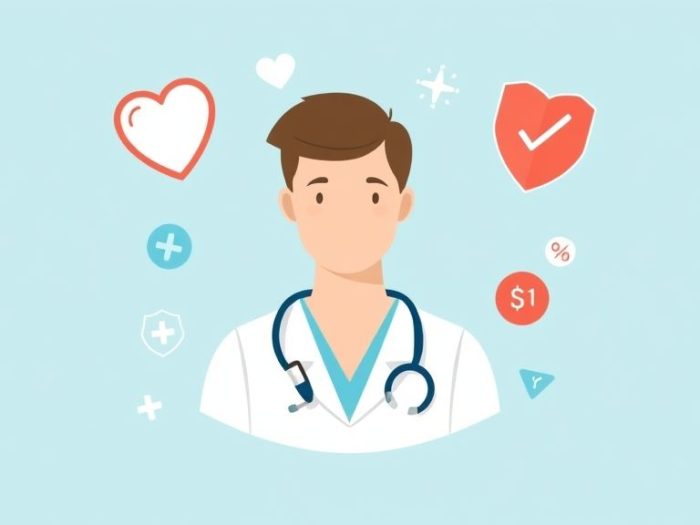Healthcare costs can be a significant financial burden, but there are strategies to
navigate the system and save thousands of dollars on medical expenses. This article
explores effective health insurance hacks to help you reduce your out-of-pocket
costs and take control of your healthcare spending.
Understanding Your Health Insurance Plan
The first step is to thoroughly understand your current health insurance plan.
- Coverage Details: Know what services are covered and to what extent.
-
Deductibles: Understand how much you must pay before insurance
starts covering costs. - Copayments: Know the fixed amount you pay for certain services.
-
Coinsurance: Understand the percentage of costs you share with
your insurance company. -
Out-of-Pocket Maximum: Know the maximum amount you’ll pay in a
year.
Health Insurance Hacks to Save Money
1. Choose the Right Plan
Selecting the right plan is crucial for managing healthcare costs.
-
Consider Your Health Needs: If you have chronic conditions, a plan
with better coverage for those conditions might be worth the higher premium. -
HDHP vs. Traditional Plan: A High-Deductible Health Plan (HDHP)
has lower premiums but higher out-of-pocket costs. It’s often paired with a Health
Savings Account (HSA). -
Compare Plans Carefully: Don’t just focus on the premium. Look at
the overall costs, including deductibles, copays, and coinsurance.
2. Utilize Preventive Care
Many insurance plans cover preventive care services like annual checkups and
screenings at no cost.
-
Take Advantage of Free Services: Schedule regular checkups to
catch potential health issues early. -
Preventive Screenings: Get recommended screenings to prevent
serious illnesses.
3. Negotiate Medical Bills
Don’t hesitate to negotiate medical bills.
- Ask for Itemized Bills: Review your bill carefully for errors.
-
Negotiate Prices: Inquire about discounts for paying in cash or
paying promptly. -
Appeal Denials: If your insurance denies a claim, appeal the
decision.
4. Explore Generic Drugs
Generic drugs are just as effective as brand-name drugs but cost significantly
less.
- Ask Your Doctor: Discuss generic options with your doctor.
- Check Prices: Compare prices at different pharmacies.
5. Use Telehealth Services
Telehealth can be a convenient and cost-effective way to get medical advice.
-
Virtual Appointments: Use telehealth for routine checkups or
minor illnesses. - Reduce Travel Costs: Save on gas and parking expenses.
6. Health Savings Account (HSA)
If you have an HDHP, an HSA offers a triple tax advantage:
- Tax-deductible contributions
- Tax-free growth
- Tax-free withdrawals for qualified medical expenses
7. Price Transparency
Take advantage of price transparency tools to compare prices for medical
procedures.
- Shop Around: Compare prices at different hospitals and clinics.
-
Ask for Estimates: Request cost estimates before receiving
treatment.
Example Savings
- Choosing an HDHP: $1,000+ per year
- Negotiating Bills: $100-$500+ per bill
- Using Generic Drugs: $10-$100+ per prescription
Important Considerations
- Accurate Information: Provide accurate information to your
insurance company. - Preventive Care: Don’t skip preventive care to save money; it
can prevent more costly problems later. - Emergency Care: Don’t delay emergency care due to cost concerns.
Conclusion
By understanding your health insurance plan and implementing these strategies, you
can significantly reduce your medical expenses and improve your financial
well-being. Remember to be proactive, informed, and an advocate for your own
healthcare.
Related Keywords
Health insurance hacks, save money on medical expenses, reduce healthcare costs,
affordable healthcare, health insurance tips, HSA, HDHP, negotiate medical bills,
generic drugs, telehealth.
Frequently Asked Questions (FAQ)
1. Why is it important to understand my health insurance plan?
Understanding your plan helps you know what’s covered, your out-of-pocket
costs, and how to use your benefits effectively.
2. What is a deductible?
A deductible is the amount you pay for covered healthcare services before
your insurance plan starts to pay.
3. What is a copay?
A copay is a fixed amount you pay for a covered healthcare service, like a
doctor’s visit.
4. What is coinsurance?
Coinsurance is the percentage of the cost of a covered healthcare service
you pay after you’ve met your deductible.
5. What is an out-of-pocket maximum?
The out-of-pocket maximum is the most you’ll pay for covered healthcare
services in a plan year.
6. What is the difference between a HDHP and a traditional health plan?
A High-Deductible Health Plan (HDHP) has lower premiums but higher
out-of-pocket costs compared to a traditional plan.
7. What is a Health Savings Account (HSA)?
An HSA is a tax-advantaged savings account that can be used to pay for
qualified medical expenses.
8. How can I save money on medical bills?
You can save money by negotiating bills, asking for itemized bills, and
appealing insurance denials.
9. Are generic drugs cheaper than brand-name drugs?
Yes, generic drugs are typically significantly cheaper than brand-name
drugs.
10. Is telehealth a cost-effective alternative to in-person visits?
Yes, telehealth can be a cost-effective way to get medical advice for
routine checkups or minor illnesses.



